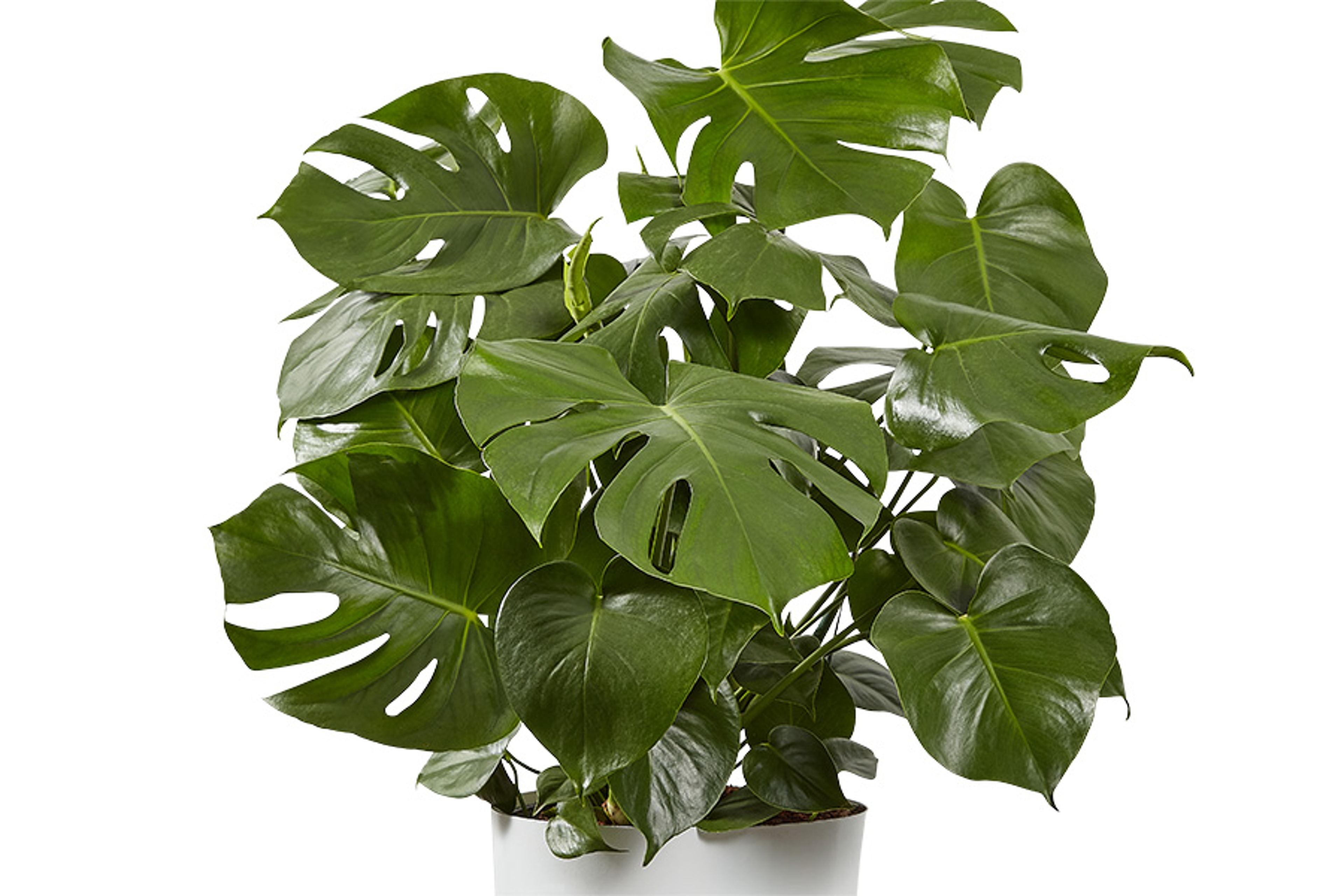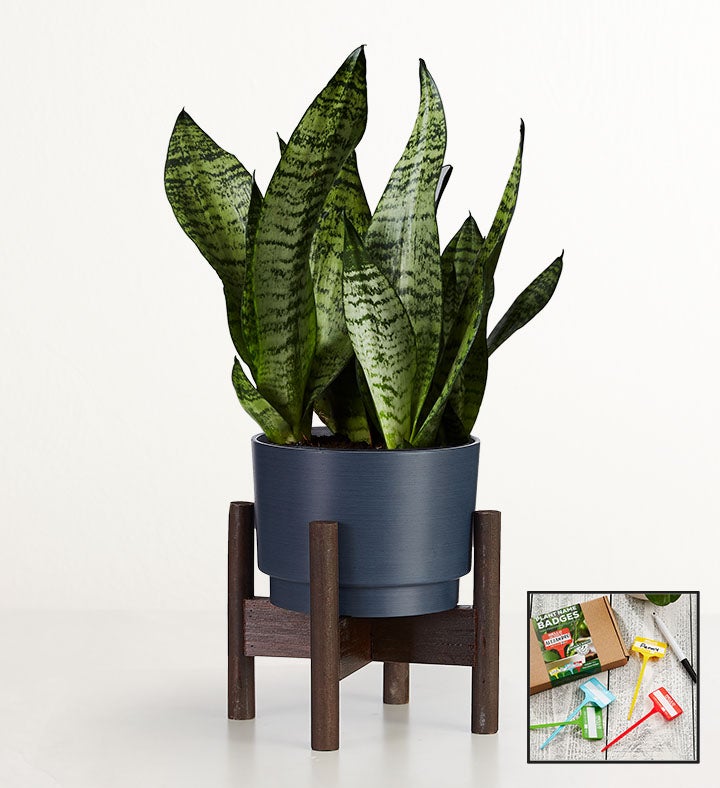Why You Should Name Your House Plants
It’s customary to give your new “family member” a name, and your #PlantFam is no different!
Sep 27, 2020
I’m sure you’ve heard by now that “plant parent” is the new “pet parent” — and it’s not just millennials that are obsessed with their plants. People of all ages are looking toward the many health benefits of plants and ways to brighten up their homes or offices.
When welcoming a new member of your household, it’s customary (and polite!) to give your new “family member” a name, and your #PlantFam is no different. Naming plants has become increasingly popular, so we’ve come up with a list of the benefits of naming your green friends.
Plant expert and 1-800-Flowers.com Vice President of Merchandising Alfred Palomares is a “total plant dad” and has 14 houseplants (!!!) that he affectionately calls the “Shady Ladies.” “My apartment gets a lot of indirect light, which is perfect for my group of houseplants that thrive in this type of environment,” he says.

Reasons for naming your house plants
- Naming your family of plants helps you gain a deeper connection with them and gives you a good reason to start talking to them.
- Talking to plants has proven to have a calming affect and makes some people feel less lonely. “My plants also make working from home a much calmer, relaxing, and less lonely experience, while also adding beauty to the space,” Palomares says.
- Talking to your plants can help them grow faster, likely because of the CO2 you exhale.
- “Naming plants is a fun and healthy way of connecting with them," Palomares says. "It further promotes an investment in plant care — as you watch your plants flourish, you have a sense of excitement, whereas if they aren’t doing so well, you may feel concern and tend to them more.”
3 tips for naming your house plants
1. Learn more about your plants’ names
Usually most plants have more than one name. The snake plant, for example, is also called sansevieria zeylanica. A money tree bonsai is also known as pachira aquatica, and a pilea peperomioides is more commonly known as a UFO plant. With info like that, details in their names may help you pick a name for your new plant fam member.
2. Base your plant's name on its characteristics
Each plant has its own personality and style, and two plants are the same. Look into the characteristics of your plant, such as leaf color or whether it blooms, like an orchid. If your plant does bloom, what color are its flowers? Are the leaves round, like those of a UFO plant, or spikey, like those of a snake plant? These details can help you find the perfect plant name. Many plants also come in different species, so do some research to make sure you know exactly which one yours is.
3. Be creative and have fun
At the end of the day, there is no wrong way to name your plant, so be creative and have fun with your new green plant! If you want to give your plant a middle name and last name, the world is your oyster.
Plant naming examples for some of our favorite house plants
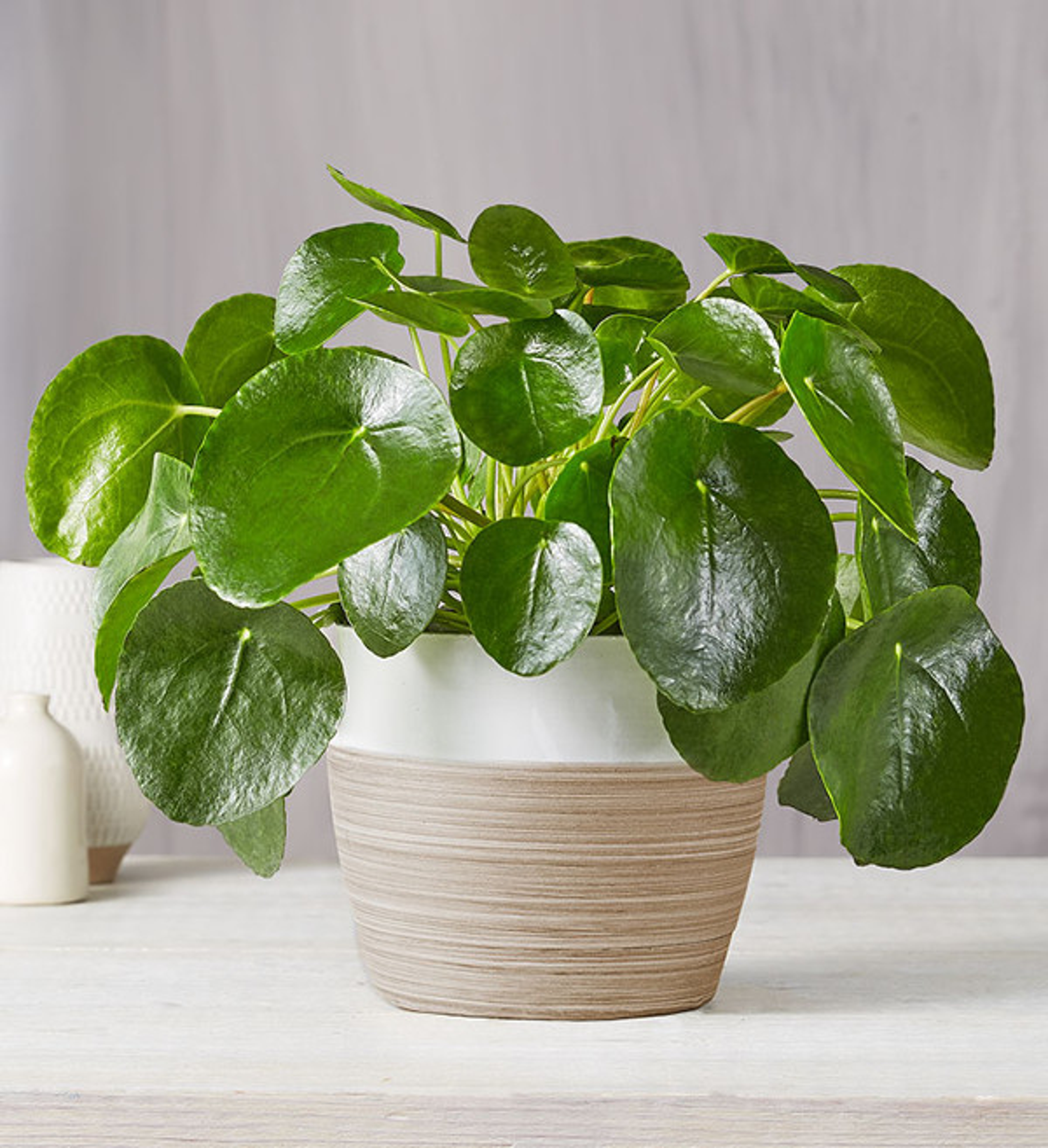
Pilea peperomioides aka UFO plant
Potential names: E.T., Alf, Paul the Pilea Peperomiodes
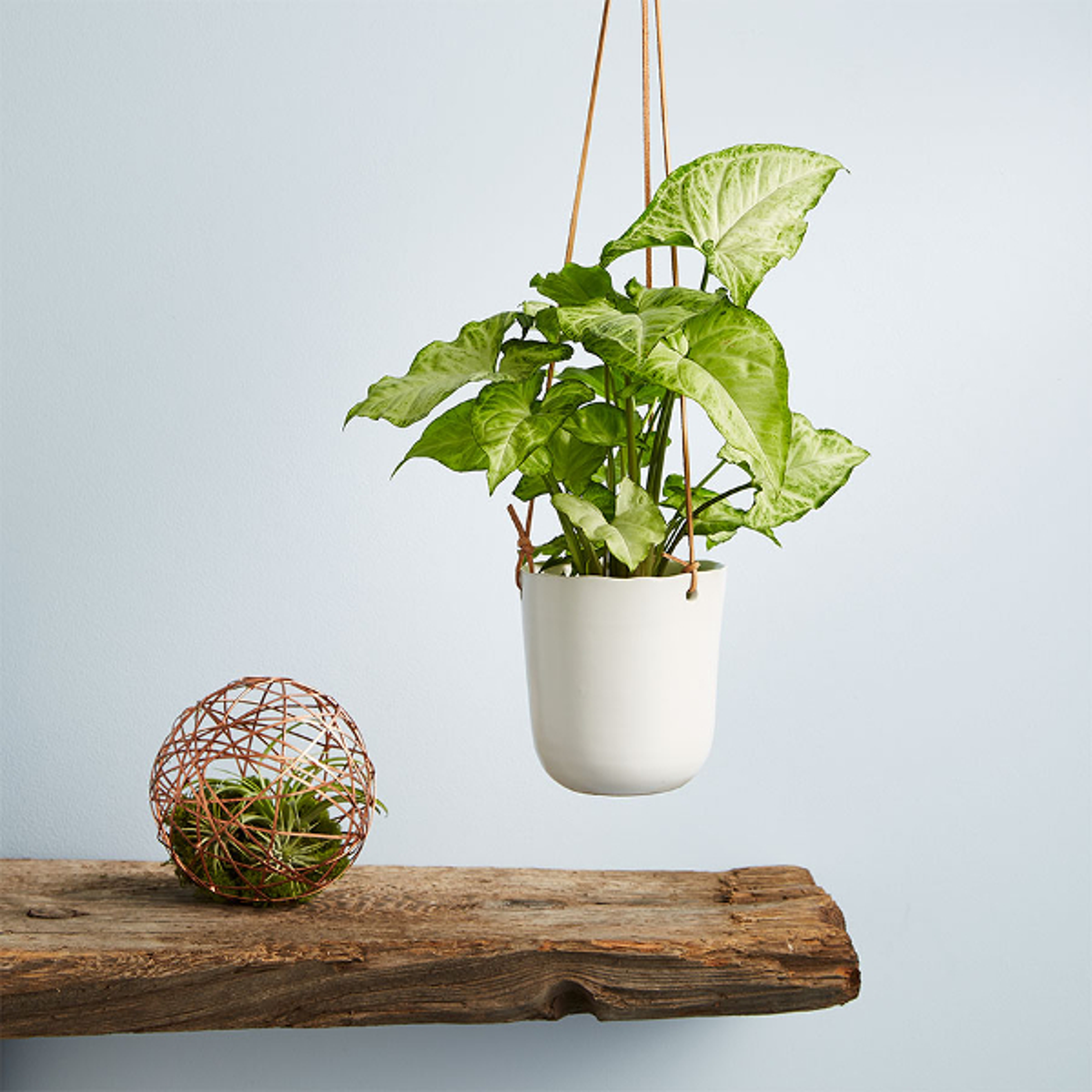
Arrowhead hanging plant aka syngonium
Potential names: Arrow, Pointer, Arthur the Arrowhead Plant
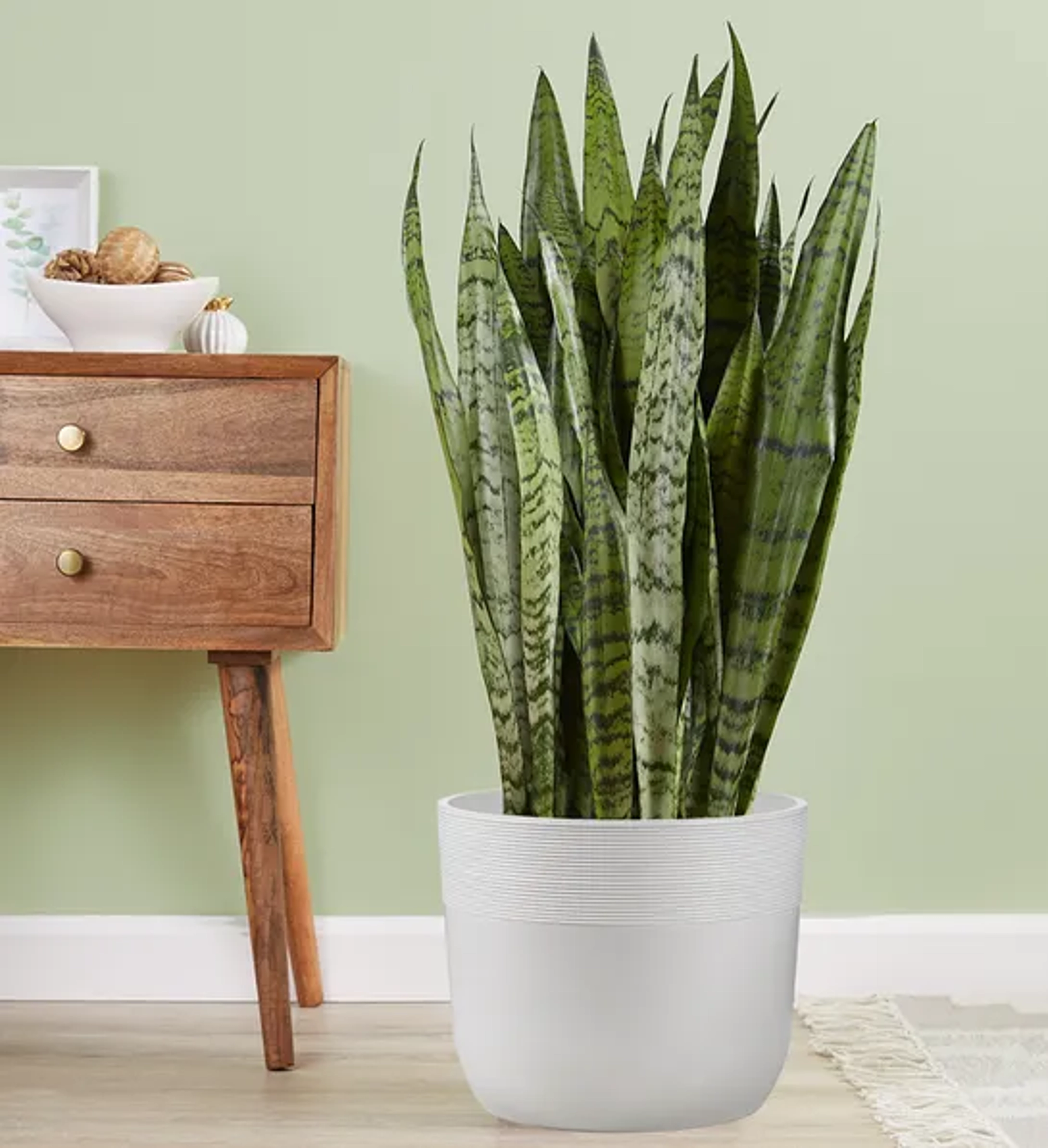
Snake plant aka sansevieria zeylanic
Potential names: Slither, Slitherin, Spike, Sanford the Snake Plant, Sans the Snake Plant
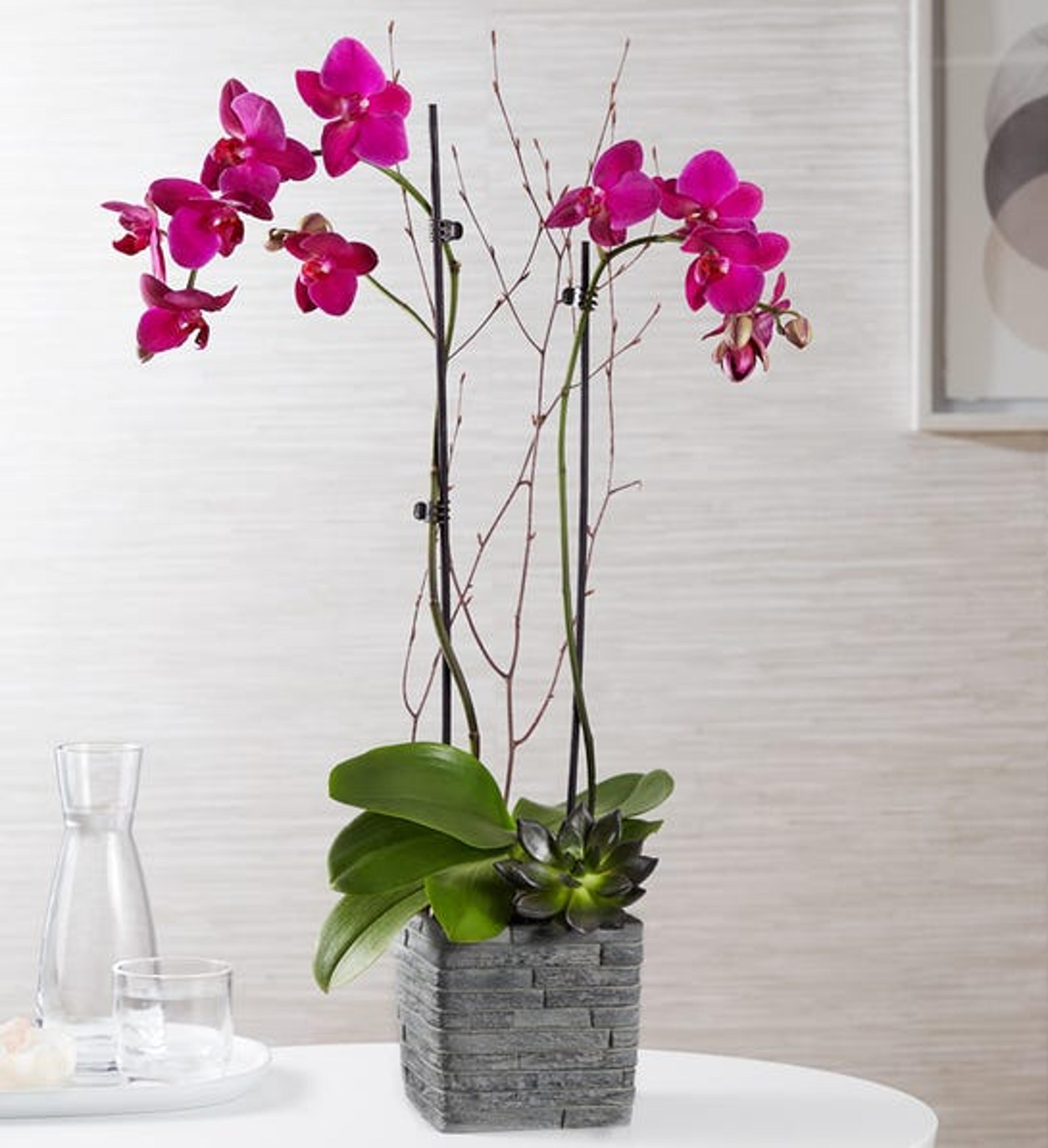
Monstera deliciosa aka swiss cheese plant
Potential names: Monty the Monstera, Meryl the Monstera, Audrey (think "Little Shop of Horrors" ;))
3 reasons house plants are a home decor must-have
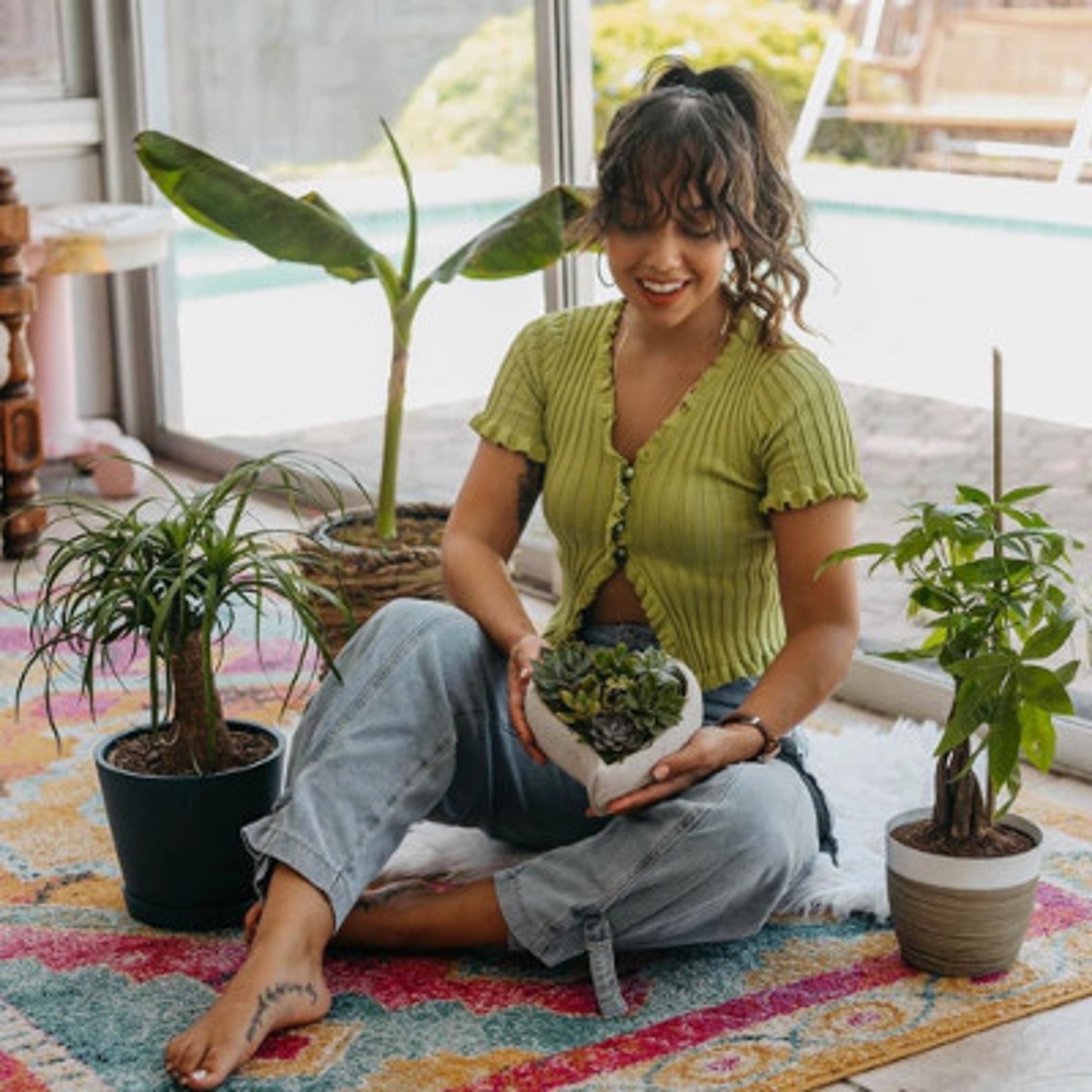
1. They promote better health
Studies show that houseplants can purify the air as well as improve an overall sense of well-being. Whether you live in the city and want a little apartment detox or crave the comforting vibes of nature surrounding you, indoor plants are a great way to keep you inhaling the good and exhaling the bad.
2. They help keep you company
Plants make for a much calmer, relaxing, and less lonely space. Have you ever heard the saying that you’re never alone when you’re with Mother Nature? People visit forests, parks, and gardens for a reason — nature is known to soothe and relax us. Having indoor plants is like bringing some of nature home with you.
3. They make you care about something other than yourself
Having plants to care for gives you the same nurturing feeling that having a pet or child would (OK, maybe not exactly the same, but hear us out...). Giving your plants water when they’re droopy, sunlight when they’re losing their color, and fertilizer when they’re losing their leaves can give you a sort of attachment to them. Suddenly, you worry when your plant starts looking “sick” and start googling remedies, asking friends, and giving your plants more love and attention. You may even start talking to your plants!



